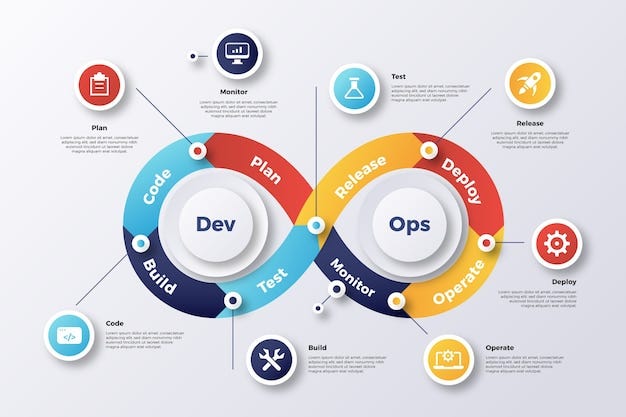What is DataOps? Why is it important for enterprises in 2024

What is DataOps?
DataOps, short for Data Operations, is an emerging discipline that draws inspiration from the principles of DevOps to manage and streamline data analytics processes. It focuses on improving the efficiency, quality, and reliability of data analytics by fostering a collaborative culture among data engineers, data scientists, and operations teams. DataOps aims to automate and orchestrate the end-to-end data pipeline, from data ingestion and transformation to analytics and visualization.
At its core, DataOps is about treating data as a product and managing it with the same rigor and methodologies applied to software development and operations. This includes practices such as continuous integration and continuous delivery (CI/CD), automated testing, monitoring, and version control. By integrating these practices, DataOps ensures that data workflows are scalable, reproducible, and adaptable to changing business needs.
Why is DataOps Important for Enterprises in 2024?
1. Enhanced Data Quality and Reliability
In 2024, the volume, variety, and velocity of data continue to grow exponentially. Ensuring data quality and reliability is critical for enterprises to make accurate and timely decisions. DataOps facilitates automated data validation and testing, which helps detect and rectify data issues early in the pipeline. This proactive approach minimizes the risk of errors and ensures that data remains trustworthy throughout its lifecycle.
2. Accelerated Time-to-Insight
The competitive landscape in 2024 demands that enterprises derive insights from data faster than ever before. DataOps enables seamless collaboration between data teams and automates repetitive tasks, reducing the time required to develop and deploy data analytics solutions. By streamlining the data pipeline, organizations can accelerate the time-to-insight, allowing them to respond swiftly to market changes and customer needs.
3. Scalability and Flexibility
Enterprises are increasingly leveraging diverse data sources and advanced analytics techniques, such as machine learning and artificial intelligence. DataOps provides the scalability and flexibility needed to manage these complex data environments. Through containerization and orchestration tools like Kubernetes, DataOps ensures that data workflows can scale horizontally and adapt to evolving technological landscapes.
4. Improved Collaboration and Productivity
DataOps promotes a culture of collaboration and shared responsibility among data engineers, data scientists, and IT operations. By breaking down silos and fostering cross-functional teamwork, DataOps enhances productivity and innovation. This collaborative approach not only improves the efficiency of data projects but also drives the development of more robust and creative solutions.
5. Compliance and Data Governance
In 2024, regulatory requirements and data privacy concerns are more stringent than ever. DataOps integrates data governance practices into the data pipeline, ensuring that data handling complies with relevant regulations and standards. Automated data lineage tracking, auditing, and access controls help organizations maintain compliance and mitigate risks associated with data breaches and misuse.
6. Cost Efficiency
Efficient data operations translate to cost savings for enterprises. By automating data workflows and optimizing resource utilization, DataOps reduces operational overheads and minimizes the need for manual intervention. This cost efficiency allows organizations to allocate resources more effectively and invest in strategic initiatives that drive business growth.
Conclusion
DataOps is a critical enabler for enterprises looking to harness the full potential of their data in 2024. By enhancing data quality, accelerating time-to-insight, and fostering collaboration, DataOps empowers organizations to stay competitive in a data-driven world. As data continues to play a pivotal role in shaping business strategies, adopting DataOps practices will be essential for enterprises aiming to achieve agility, innovation, and sustainable growth.


Comments
Post a Comment